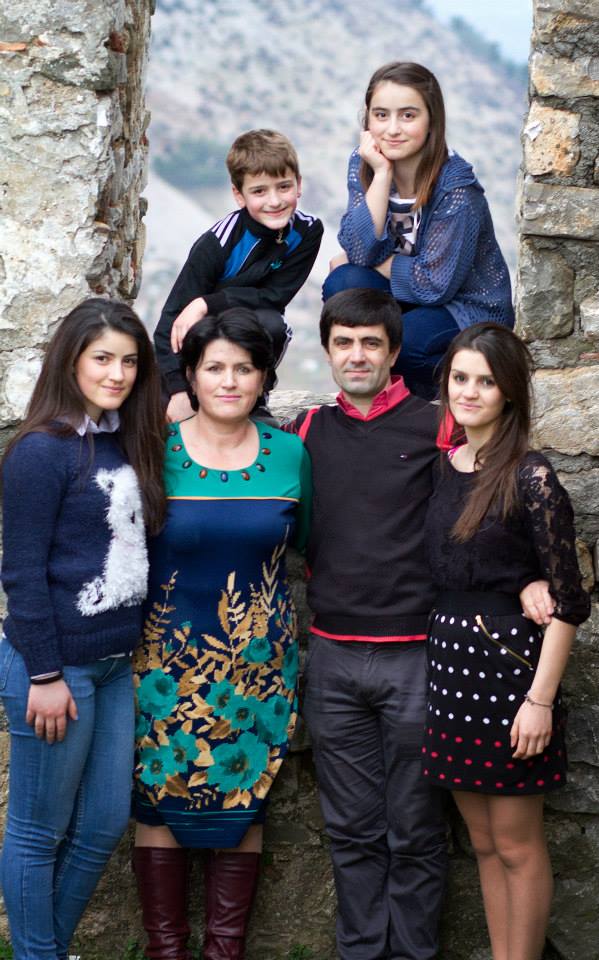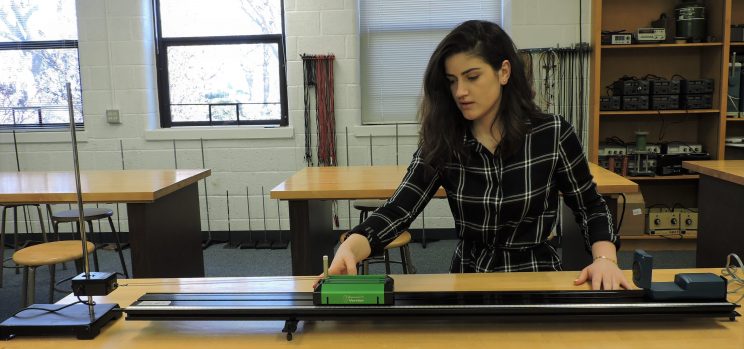Albanian Student Hopes to Create Equal Opportunities for Women
By Sarah Miller – Horizon News & Features Editor

Armelda Xhari once asked her cousin’s wife, as a young woman, what had she wanted to be when she grew up. She responded, “What do you mean? I’m a mom. I have kids. That’s it.”
It’s interactions like this one that stuck in Xhari’s mind when she left her home country of Albania in high school. She saw the inequalities women had to deal with daily. A woman’s individual identity and ideas were unimportant. And she knew there needed to be a change.
Xhari realized how lucky she was to have parents who supported her freedom and encouraged her to travel and study in areas with more opportunities, which brought her to the United States.
“The more I travel, the more I’m able to see what’s right and wrong my with culture,” Xhari said. “When I lived back home, I noticed that I did not have the same opportunities as guys. Women are respected and taken care of and provided with shelter and food. But at the same time, you belong to men of the house, whether that’s your father, brother or husband.”
Xhari isn’t the only one paying attention. Although improvements have been made, organizations like the United Nations Development Programme also see a need to promote and enhance gender equality in Albania.

There are other inequalities in the home life and work life in Albania, Xhari says. She noticed when men dominated the conversation, and when a woman expressed her opinion, it wouldn’t be taken as seriously.
Albanian culture and tradition prioritizes marriage and kids in a way that Xhari says limits women. Girls are raised on the mindset that their purpose is to be a mother, and they don’t need any other goals or dreams.
“I really love family and I hope to have my own family someday, but I think we can do so much more,” she said. “Life would be so much more giving to us if we explored ourselves a little bit more.”

Photo courtesy of Armelda Xhari.
As a teenager in Albania, Xhari wasn’t allowed to work because it wasn’t culturally acceptable. Her male friends, however, could get jobs. As she saw the freedoms allowed to women in other countries around the world, she knew the rules didn’t have to be this way.
“If we are somehow able to break those cultural barriers and allow women to work, to have their money, to make their own decisions, the future would be so much better, not only for the women, but for society,” Xhari said.
Although a lofty goal, Xhari already has plans for making a difference.
She hopes to create more job opportunities for women and “encourage them that it is worth it to go to college after high school,” she said. “I hope to build scholarships so fathers don’t feel obligated to pay for [their daughters] to go to college, which might be holding them back.”
Xhari also wants to see more laws and policies that encourage women to continue their education. Along with that, more programs and degrees accessible to women.
“It’s not just about changing the individuals, but it’s also about changing the system,” she said.



